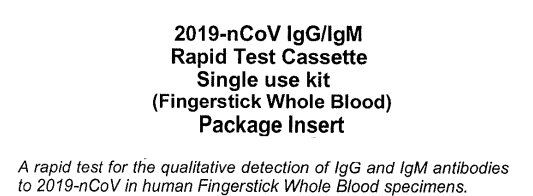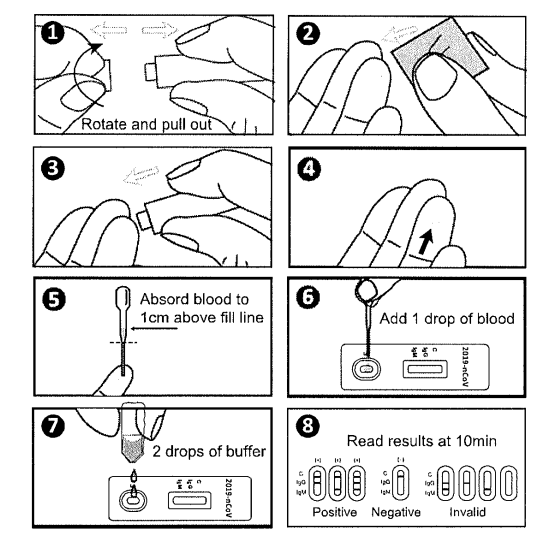Corona/COVID-19 Selftest Warning
Several sites are now shipping “COVID-19 self test kits” or perhaps “Coronavirus self test kits”. These claim to detect the virus in 10 minutes based on a drop of blood.

These rapid self-test kits are currently:
- Likely fake
- Even if not fake, they do NOT test for the virus, they do NOT do what you think they do
- Even if they do what they are supposed to, these tests have not been validated and could be wrong a lot.
As of this week (16th of March), non-medical people can only get confused by such tests, and may even be harmed. Stay far away. Good tests might appear later, but not yet.
So why am I, a non-virologist, telling you this? I have verified this story with actual experts, but it appears they are busy with real work instead of blogging. But please do spread this story!
In one sentence: the test is likely fake, and even if it isn’t, it will only detect something after you’ve been ill for one or two weeks. So if the test detects nothing, that does not tell you anything, and you might still get ill!
And the other way around, if it DOES detect something, it might actually mean you are now cured. So confusion ALL round. Read on for more detail.

What does exist are unvalidated “serological” tests that do NOT detect the actual Corona virus. What they detect instead is something that only happens days or perhaps weeks after infection: antibodies.
So if you get infected with COVID-19, your body will start generating antibodies.. after a while. Once these have been generated, it is indeed possible to detect these with a simple test.
So if the test is real (likely not!) and if it does what it is supposed to, it will show you if you have created antibodies against COVID-19.
But we don’t yet know what this means, not how long ago you were infected, if your antibody response is actually helping etc.
So please do NOT buy these tests and if you bought one already, know that it may not be telling you anything useful.
What the test actually measures
A “serological” test measures the presence of IgM and IgG antibodies. When we are infected, our bodies first launch a generic (‘innate’) attack. This is then followed by the generation of IgM antibodies which help fight the disease. Finally, IgG antibodies are generated which provide for longer lasting immunity.
So if we are lucky and it all works as it should, someone who tests positive for COVID-19 IgG antibodies, but negative for IgM, has probably cleared the disease and is now longer-term immune. But right now: who knows.
Developments
As of the 21st of March, certified tests are appearing. Several different institutes have not validated the IgG/IgM and also IgA concept. IgA appears to live in mucus and not in blood, perhaps this might enable a mucus based test? Details are in the papers.
Future tests
If we get validated non-fake tests, it may be possible to use these 10-minute tests to determine if someone is already likely immune against COVID-19. This could be wonderful for healthcare workers for example. Perhaps being immune might even be a requirement if you want to work in certain places.
There might be useful tests in the near future, but as of the 16th of March, nothing you can get your hands on is useful unless you are a seasoned immunologist.
One actual 10-minute COVID-19 test being developed might be ready in June which just goes to show that what is being sold today is not the real thing.
To learn more about antibodies and the latest scientific developments of COVID-19, please head to my Corona Science Journal.
